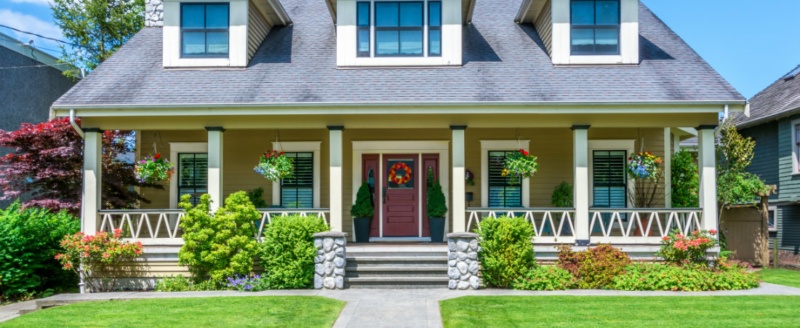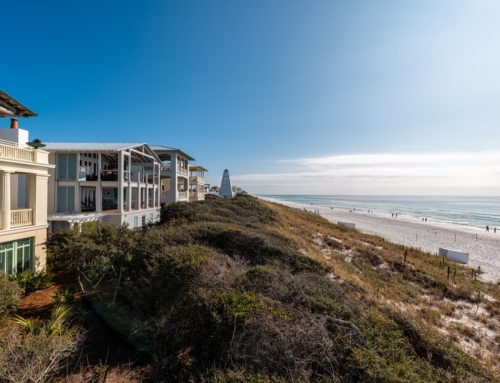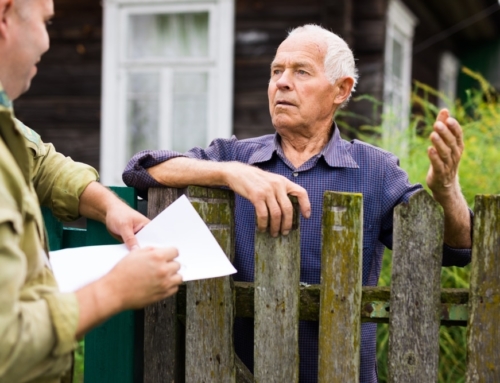How joint ownership affects capital gains tax. Joint homeownership affects who pays capital gains tax when you sell, the cost depends on several factors.
Q: I own my house, free and clear in Arizona, together with my two sons. If I sell, the capital gains tax is 15 percent. Do we each have to pay 15 percent on the profit or am I the only one who has to pay the tax?
I’m the principal owner and not my sons. Do I need to quitclaim the home to my sons before I sell? The property is not my primary residence and that’s why I have capital gains tax to pay.
How Joint Homeownership Affects Capital Gains Tax
A: When you own a home with your kids, you probably did that for “estate” planning purposes. Many people decide to title their properties with their kids in joint tenancy with rights of survivorship. They do that so that when the parent dies, the kids automatically get title to the property. When families take this route, they usually don’t think about the tax consequences but rather the process of having the property go from a parent to a child after death.
From the property transfer process, the use of joint tenancy to transfer ownership of a home after the death of a parent is easy and cheap. On the federal income tax side, the process can be a bit more complicated and sometimes not very beneficial to the children.
But let’s first deal with your capital gains tax issue. When you have a second home — and it is not an investment property — and then sell it, you may or may not have federal income taxes to pay. If you have a loss on the sale, you won’t have federal income taxes to pay and you also won’t have a “loss” to claim on your income tax return.
Capital Gains Tax
If you have owned the property for more than one year and sell for a profit, you will have a tax to pay but that tax will be a capital gains tax. Currently, the capital gains tax is 15 percent for lower-income Americans and 20 percent for higher-income Americans. The capital gains tax is only computed on the profit on that sale. You probably have costs when you purchased the home and you certainly will have costs in the sale of the home. You also have capital expenses you put into the home while you owned the home. When you compute all of these amounts, you come up with the “basis” for the home and the “gain” or profit in the sale of the home.
Basis and gain are the general terms used by tax practitioners and the IRS in determining what your cost and profit might be on the sale of a home.
Estimating Capital Gains Tax
If you have an idea of what your profit is and generally know where you are on your tax bracket for income tax purposes, you can sort of figure out where you’ll fall in paying capital gains taxes. You mentioned the 15 percent rate for yourself. If that rate is true for you and you have a $50,000 profit on the sale of the home, you could say that the 15 percent capital gains rate might be $7,500. But that would be too easy.
In reality, computing capital gains is going to be way more complicated than that for you. Since you own the home with your kids but your kids probably never had anything to do with paying any of the bills for the home and were on title solely for estate planning purposes, your sale might only get reported on your federal income taxes. If that’s the case, your kids shouldn’t have any tax consequences with the IRS.
What Happens if the Profit on the Sale Bumps You to a Higher Tax Bracket?
Now if the profit on the sale bumps you up to a higher tax bracket, you might end up paying up to 20 percent in capital gains taxes on the sale of the home or about $10,000 plus you might also have to pay the 3.8 percent Medicare tax for a total tax of around 23.8 percent on the sale of the home.
While it’s easy to give you these numbers, the actual amount you pay will vary on your income, your deductions and other factors. We’d suggest you sit down with an Enrolled Agent or your tax advisor to go over your sale. Finally, frequently people think the tax they will pay will be much higher than the amount that actually comes about after you compute all the expenses and look at all factors in your tax return.
On the issue of having your kids on title to the property, current law would say that if you own the property by yourself, when you die, your kids would inherit your property at the property’s value at the time of your death.
So, if you did have a $50,000 profit if you sold but kept it and later died, your kids would pay no tax on the sale of the home because when they sold it, the IRS would treat the kids as having sold the property at the same value for which they got it — so no profit on that sale. That’s something to keep in mind when you plan how you hold title to a second home and even investment property.
More on Topics Related to Joint Homeownership
What Are the Tax Implications of Joint Property Ownership?
Transferring Homeownership During Refinance
Can a Surviving Spouse Sell the House?
Explaining California Prop 13 Transfer Rules
If I Pay Taxes on a Property Do I Own It?
What Happens to a House When Someone Dies?









Great information, but you did not answer the question, which is basically, does his kids have to pay capital gains tax or does he have to pay it all. What if his kids lived in the house 2 of the past 5 years and there was no rental income during the time they occupied the prooperty?
Ty:
It depends on how the property is owned. So, if the father owns a third and the two sons each own a third, and they live in the property, they would be able to claim the property is their primary residence and should be able to shield one-third of the profits up to $250,000 each. If the property had only $100,000 in profits, the two sons should be able to claim up to $33,300 each. The father would not be able to claim the exemption, unless the property was also his primary residence.
Hope this helps. Thanks for your question.
Ilyce Glink, Publisher
ThinkGlink.com
Really helpful stuff, Ilyce. Here’s an even more complicated question:
Say for example the father purchases a property for $185,000, and lists himself with a single son on the deed. The son then lives in the property for five years while paying taxes, maintenance, and HOA. The property is then converted into a rental and rented out for five years while the son manages the property, pocketing the rent, but also paying all expenses, taxes, and HOA.
What happens tax-wise at the time of sale, if the property is sold at a loss, say $170,000, but the son receives all proceeds?
Really helpful information Ilyce. Thank you! Have another complex question:
I bought a house with my sibling with a 60/40 split back in 2013. We are thinking on selling the property and based on this we should be able to claim the $250K exemption each. Therefore, what happens with the Capital Gain Taxes? Are the CGT considered based on the Total Home Gain – Exemptions ($500K)? Or is it based on the original 60/40 split and each of us is treated individually?
Thank you in advance!
My husband and his two sisters own the family home, when the father died their mother put the house in their name with rights of tenancy. Will they have to pay capital gains and on what?
My dad gifted/quit claimed, his home to me and my brother. We are selling the home after he just passed and its only been 22 months since he did this. Are we subject to paying capital gains taxes on this gifted property? Do we split the sales at 50% each on our taxes minus any losses? Neither of us have lived in this home.
My in-laws passed away in 2018. Their farm and house in Illinois was in a trust and each of their 3 children became equal owners. I believe there isn’t an inheritance tax due to a transfer of ownership. The house and farm was sold later in 2018 and the proceeds where split up 3 ways.
Do the 3 children need to pay capital gains tax.on their portion of the proceeds?
My Father died in 2017. He had my brother on the deed to the home since the 90’s with “Right to Survivorship”. We (my 2 sisters, my brother, & I) sold the home 1 year & 3 months later. Do we still have to pay Capitol gains tax on the home even though my brother had “Right to Survivorship” for essentially 25 years? We know this was done for convenience & to avoid the difficulties with Probate, but if my brother essentially “owned” the home, why does he have to pay a tax? This is all just new to us.
My wife and sister owned a condo. My wife owned 90% and My sister owned 10%. The condo recently sold for $ 215,000.00. Payoff was $95,000.00 and when the place was purchased in 2015 the down payment was $ 30,000.00. It was my sisters primary residence. She lived there the whole time. Is there any capital gains in this situation?
Possibly. There are some unanswered questions that you should think about:
1. Your sister probably doesn’t owe anything. She lived there and her share of the profits is well below the $250,000 threshold for what she can keep tax-free.
2. Your wife didn’t live there, so the property was an investment. I’m assuming the payoff was $95,000 after the mortgage was paid off, so $86,500 would be her profit. Unless the true profit is $56,500 ($86,500-$30,000 down payment). What is the actual profit (cost of purchase + cost of major improvements +cost of sale all subtracted from sales price)
3. If your wife has a profit of $56,000, and there are no other offsets, then she probably owes some capital gains tax. Depending on the rest of your joint income, that could be 10% or 20%. Please consult with your tax preparer.
Question. Wife and I, and daughter bought a house for the daughter to live in as her primary residence. Two years later we need to sale. Daughter’s name appears first on deed and loan and has paid mortgage and taxes thus far. Who pays any capital gains on sale of this residence?
Hi James:
If this is your daughter’s primary residence, she will be allowed to keep up to the first $250,000 in profits tax free (since she has lived there for 24 months). If this is an investment property for you, and you took depreciation, then you will have a different tax structure. If this is just a secondary home for you, then you will owe capital gains tax. Talk with your tax preparer to understand how the property was presented on your tax return. Ideally, your daughter will get all of the capital gains, which she will be able to enjoy tax free.
Mom has a house she is refinancing wants me on the deed and she can no longer afford the full mortgage now that dad past. If I sign this with her and she passes what penalties do I pay for taxes. She has the house willed to me.
Rosa,
It would be better for you if she didn’t give you the property now, unless you plan to move there and live there full-time before you sell it (if you do). If she adds you to the mortgage (which she doesn’t need to do – you can just help her pay it each month), then it’s like giving you half the house. You would receive it at the price she paid for it, whenever she and your dad bought the property. When she dies, you’ll inherit the other half at the current market value. You’d pay tax on the difference between the value on the day she acquired the property and the day you sell it. If you inherit it, you’d inherit the property at the current market value as of the day she died.
If you live in the property as your permanent residence for at least 2 out of the last 5 years before you sell it, you’d keep up to $250,000 in profits tax free. Does this help?
This might be a bit confusing but, here is my question. I bought my current house (house A) back in 2007, before I was married. I moved in with my husband in 2009 into house B. I did not sell house A I had my mom move in to it. She paid no rent or taxes, just utilities. In 2014 we traded homes with my mom and moved back into house A. Then in 2019 we purchased another home together (House C), with room for mom. We intended to sell house A but spent the time fixing it up and never sold it. Then in 2022 we went through a divorce and my mom had passed, so my daughter and I moved back into house A. We sold house C (husband and I were both listed on the house) We ended up with around a 60k profit from the sale after paying off remaining mortgage. Now I am finding myself needing to sell house A. The divorce has been finalized. Will I end up needing to pay capital gains on this property? I have lived there 2 out of the past 5 years but, since we sold a home in 2022, will that effect the sale of this one?
Hi Melissa –
Wow! That’s a lot of upheaval over 15 years or so. You may be okay with selling the second home since you lived there as your primary residence for two of the past five years. It would be possible for you to have lived in two homes for two of the past five years and claim the $250,000 (per person, or $500,000 for a married couple) tax exclusion. Please talk with whoever prepares your taxes. Your divorce and any assets/alimiony you receive may complicate things and you’ll want to be sure you know what you’re facing before you list the home for sale.
Good luck,
Ilyce
Four individuals purchase and equally own the property, two of them live there for the last fourteen years . One individual is selling her share to us.
Capital gains tax is about 8,000.00 USD.
Is the individual seller entitled to 250,000 capital gains tax?